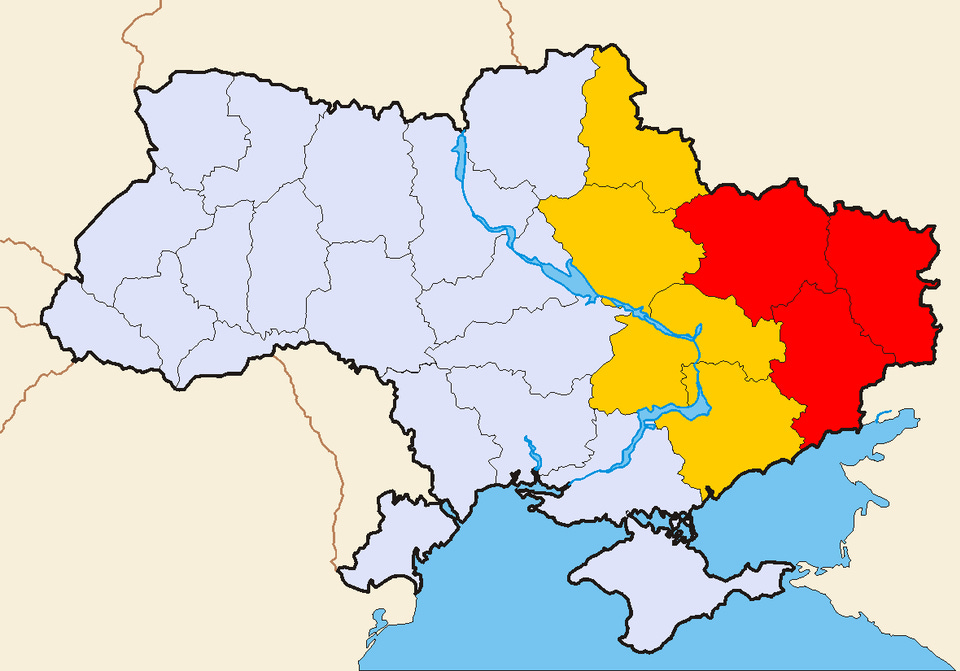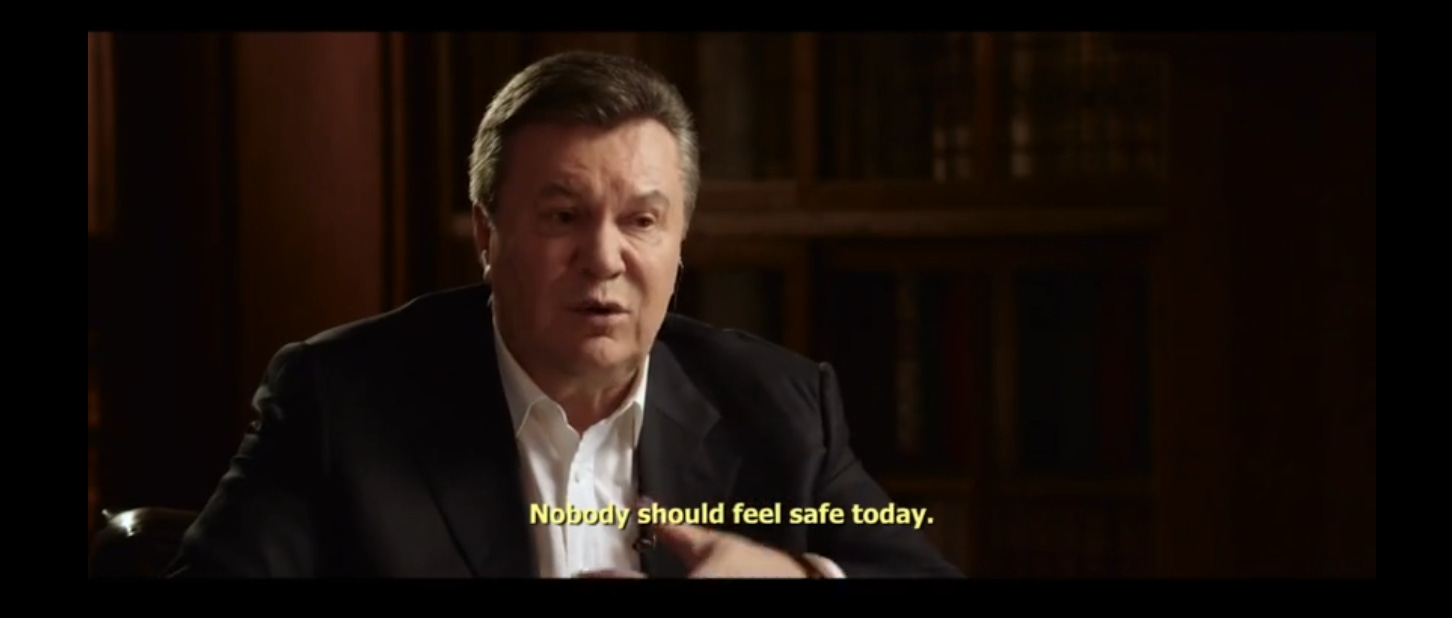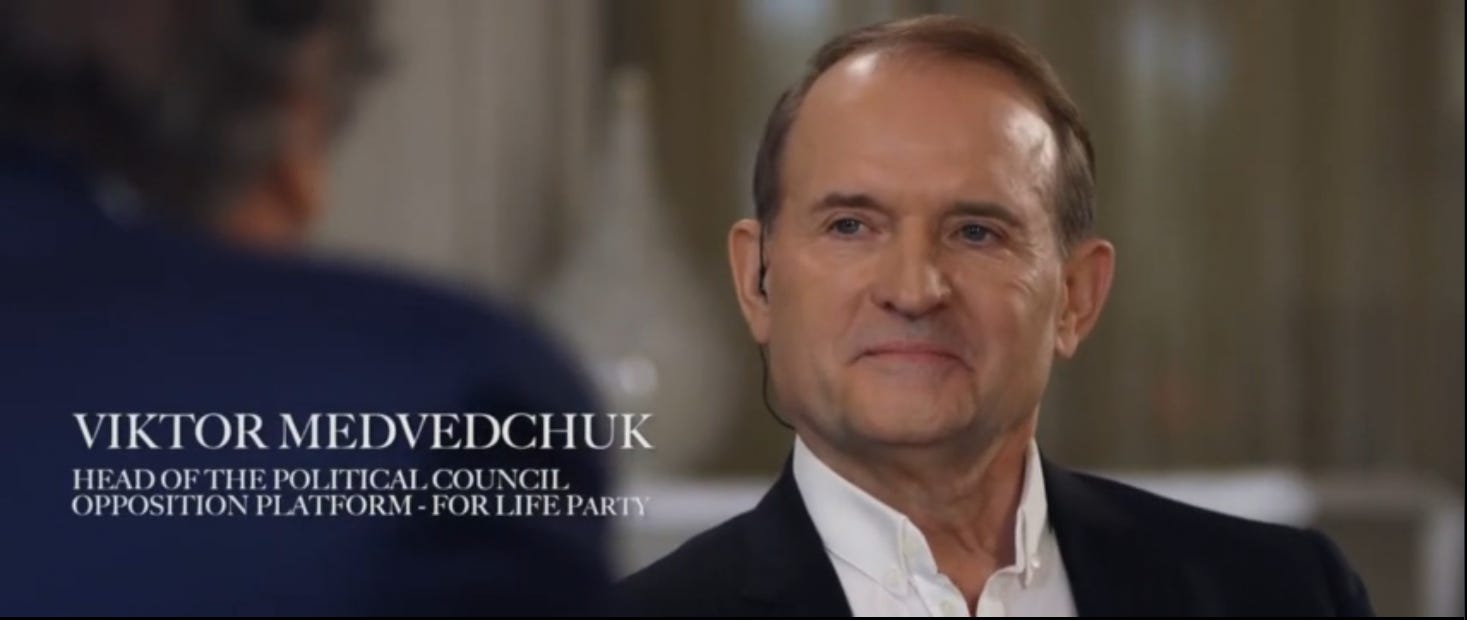Trump Does A 5D Chess Move with Europe and NATO
Mike Benz: Trump's Strange Dance With NATO
We started listening to Mike Benz’s video (below), and not long into it, we noticed something was amiss.
Mike usually does very well at assessing what is going on globally, but on this one, he’s shortchanging his response a bit, as his reasoning is too narrow.
One of the comments summarizes just what we are saying…
“Mike, with all due respect, the issue in Ukraine is not that half the country considers Zelensky illegitimate. Donbass [and the rest of Eastern Ukraine] never wanted to be a part of Russia. They just wanted to be on their own. Not because they thought that Yanukovich [the President of Ukraine overthrown by Victoria Nuland and US Ambassador to Ukraine Geoffrey Pyatt] was great, but because local oligarchs wanted to be in control. Just in case you wonder what informs my opinion, i was born and raised in Ukraine. I am ethnically Ukrainian, who thinks in Russian. I have friends and family on both sides of the front lines.”
A note about the Atlantic Council link for Pyatt - the AC controls the narrative and direction of the globalist entities, enough said? As for the NED link for Nuland, they were established in 1983 as a private, nonprofit foundation primarily funded by the U.S. Congress, with its creation stemming from a study commissioned by the U.S. government through USAID (a government foundation) to promote ‘democracy’ globally. Yeah, THAT…
The Eastern provinces of Ukraine are Russian by history and heritage - they were taken from Russia and given to Ukraine in a treaty that was full of favoritism and bias.
To our Subscribers using gMail: Due to the email size limitations used by Google for their email readers, you will need to click the headlines to view this post online.
For secure and unread emails, we HIGHLY recommend Proton.Me.
Whether a free or paid account,
you receive the same level of encryption (we are not paid for this promotion)
First, we provide Mike’s assessment of what is going on then we will provide what we have from our research on Ukraine and Russia.
This is not to say Mike Benz is not worth following or listening to - he is damn good at what he does.
It does say that none of us can be 100% on target 100% of the time…
Listen in to Mike…
VIDEO: Mike’s Assessment
Now, where Mike is falling short is somewhat lengthy if you are not familiar with the history between Russia and Ukraine (which most are not).
This will fill in the gaps of both Mike and the comment we shared above.
History of Eastern Ukraine
The history of Eastern Ukraine is marked by its distinct historical development from Western Ukraine, with the region being crucial to the founding of Kievan Rus' and experiencing prolonged periods under Russian influence, leading to stronger ties with Russia for many of its inhabitants.
Eastern Ukraine primarily encompasses the territories east of the Dnipro River, notably the Kharkiv, Luhansk, and Donetsk oblasts, with Dnipropetrovsk and Zaporizhzhia oblasts also frequently included.
This region, stretching from the Central Russian Upland to the Sea of Azov, is home to almost a third of Ukraine's population.
Historically, southern and eastern Ukraine, particularly the steppe regions, are considered by some historians as the cradle of Indo-European peoples and cultures.
The first major Eastern Slavonic state, Kievan Rus', was founded in the 9th century, with Kyiv becoming its capital due to its strategic location on the Dnieper River.
Kievan Rus' reached its peak in the 11th century, making Kyiv a significant political and cultural center in Eastern Europe.
However, the region experienced separate historical developments from Western Ukraine, leading to lasting historical fault lines.
img: red - Eastern Ukraine, yellow - sometimes included as Eastern Ukraine, depending on the source. For this post, we are focused on the red colored regions
Eastern Ukraine came under Russian rule earlier than Western Ukraine, fostering stronger ties to Russia and a greater propensity among its populace to support Russian-leaning leaders.
In the 17th century, the Cossack rebellion, led by Bohdan Khmelnytsky starting in 1648, led to the formation of the Cossack Hetmanate, a semi-autonomous polity in central and eastern Ukraine.
This rebellion was driven by grievances against the Polish-Lithuanian Commonwealth's nobility, religious tensions, and social inequalities.
Over subsequent centuries, Ukraine experienced periods of domination by Poland-Lithuania, Russia, and the Soviet Union, only achieving full independence late in the 20th century, following a brief period of independence in 1918–20.
During the Soviet era, particularly in the 1920s, Ukrainian territories, including western Ukraine, became part of Soviet Ukraine.
Modern conflicts in Eastern Ukraine intensified in 2014, following Russia's annexation of Crimea.
Pro-Russian armed groups stormed government buildings in Eastern Ukrainian cities like Donetsk, Luhansk, Horlivka, and Kramatorsk.
This led to an armed conflict in the Donbas region (Donetsk and Luhansk oblasts) between Ukrainian government forces and Russian-backed separatists, resulting in the declaration of the self-proclaimed Luhansk and Donetsk People’s Republics.
These regions were strongholds of opposition to Ukraine's westward leanings after the Orange Revolution of 2004 and the Maidan protests of 2013-2014.
The conflict escalated significantly with Russia's conventional invasion of Ukraine in February 2022.
More recently, Eastern Ukraine has been a focal point of conflict since 2014, involving pro-Russian separatists and eventually a full-scale Russian invasion in 2022.
The CIA favored leader for Ukraine, Petro Poroshenko, was and still is very anti-Russian, especially the people of Eastern Ukraine.
As far as Petro was concerned, they could starve themselves to death, as he was not about to do anything to assist them.
This was further exacerbated by the direction of Victoria Nuland and Geoffrey Pyatt, U.S. Ambassador to Ukraine.
The election of 2014 was also manipulated - due to the 2014 Crimean crisis and Russia's annexation of Crimea in March 2014, through Crimea elections to do so, Ukraine elections were not held in Crimea.
In the Donbas region (Eastern Ukraine), only 426 out of 2,430 (20%) planned ballot stations opened for polling.
If any of this comes as a surprise to you, then Oliver Stone’s documentaries on Ukraine will help anchor your knowledge properly.
If you really want to know what is going on and why in this area, both are highly recommended.
Both are on our Rumble channel - just click the image, button, or link to view from there…
2016 - Ukraine on Fire
2019 - Revealing Ukraine
SOURCES (given the liberal mentality of some sources, we provide an archive link should the original post be manipulated or simply vanish, hence, very rarely do we use sources like Wikipedia for research)
https://apnews.com/article/russia-ukraine-war-territory-control-timeline-9eb40089dfb402d273b47b7930199d89 [archive]
https://www.britannica.com/place/Ukraine/The-crisis-in-Crimea-and-eastern-Ukraine [archive]
https://www.csis.org/analysis/russias-battlefield-woes-ukraine [archive]
https://www.crisisgroup.org/content/conflict-ukraines-donbas-visual-explainer [archive]
https://www.dw.com/en/why-is-the-donbas-so-important-for-russia/a-61547512 [archive]
https://www.encyclopediaofukraine.com/display.asp?linkpath=pages%5CH%5CI%5CHistoryofUkraine.htm [archive]
https://data.ipu.org/parliament/UA/UA-LC01/election/UA-LC01-E20141026/ [archive]
https://www.nationalgeographic.com/history/article/russia-and-ukraine-the-tangled-history-that-connects-and-divides-them [archive]





